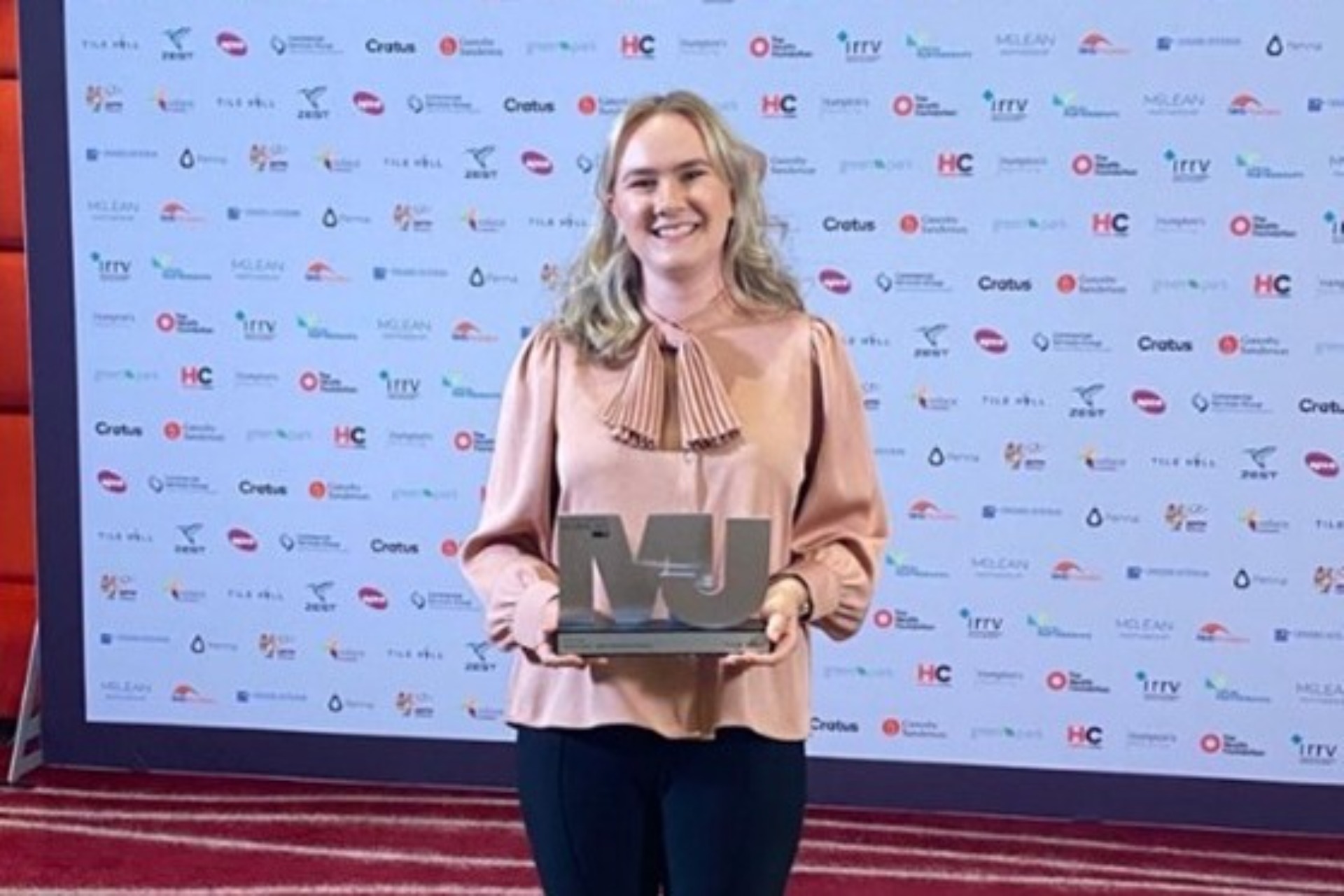Alumna Grace Couch, recently received the “Rising Star” award in the Municipal Journal Achievement Awards 2022 for her work as Climate and Ecologial Emergency Project Officer. Here she tells us more about what that involves…
Tell us what it means to be a Climate and Ecological Emergency Project Officer?
The role of Climate and Ecological Emergency Project Officer was created as a result of the Climate and Ecological Emergency declared by Swale Borough Council in 2019, and the subsequent action plan that works towards achieving net-zero across the council estate by 2025, and across the whole borough by 2030.
I am predominantly tasked with overseeing the implementation of this action plan, both supporting and monitoring the work of other departments as well as taking on projects to help reduce our carbon footprint. Some of the projects include:
- Applying for funding for and project managing the expansion of our EV charging network
- Delivering Carbon Literacy Training to staff and councillors, as well as other engagement work including the staff ‘Climate Champions’ group
- Modal shift projects such as launching Faversham Car Club and supporting active travel infrastructure
- Public engagement and campaigns, both online and in-person events, such as the ‘Great Big Green Week’ calendar of events
- Supporting waste & recycling initiatives, such as the Refill Scheme and ‘Swale Sisters’ (providing sustainable period products in schools and the wider community)
- Embedding the climate emergency in council policies, such as procurement, licensing, planning and writing our Electric Vehicle Strategy
- Conducting audits of our operations, such as a single-use plastic audit, home vs office working emissions study, and staff commuting patterns project
Can you tell us about the work you have done to create an impact
From the above, the highlight achievements would probably be successfully receiving £100,000 in grant funding for EV charge points in our car parks, which I achieved alongside writing and publishing our Electric Vehicle Strategy.
I think staff engagement would be the other area – I’ve had some really lovely comments about the Carbon Literacy Training (6-hour course) I have been delivering to staff. I think I underestimated the impact I have been having on the people around me in terms of maintaining enthusiasm about tackling the climate emergency, as well as finding projects and policies that have co-benefits for residents and the council, as well as saving carbon or improving biodiversity, therefore working towards all of our aims.
How can we help with the Climate Change Agenda?
Climate change needs to be embedded in everything we do – it cannot be a standalone department or team. Develop your skills of persuasion, or at least communication and team working skills, as there will still be a lot of people you need to convince that the climate emergency is even real. Have the business case ready for why tackling the climate emergency will bring co-benefits in everything we do: green spaces improve wellbeing, community solar supports local people, sustainable period products provide period dignity, energy and water saving initiatives help people save money etc.
Whether you go into climate change as a career or peruse any other route, climate mitigation (and unfortunately now a lot more adaptation) will be the responsibility of everyone.
How do you think studying Politics and International Relations has helped you in your current role?
I think my understanding of local government has been useful, and as a self-proclaimed local government ‘nerd’ I find working inside these political structures incredibly interesting.
Although there are fewer opportunities to apply some of the knowledge from my degree (the ‘international’ aspect is slightly less relevant at the moment), the skills of being able to present a strong argument when report writing, to understand voting behaviour and the views of local residents, and the ability to research and present information clearly are probably most helpful.
My knowledge of social inequality from a wild social policy module I took has been really useful in my approach to everything we do due to the high levels of social deprivation in parts of Swale.
What is your next challenge?
We are currently looking at a few pieces of work to support the business sector decarbonise, including taxi drivers. We need to find ways to support and incentivise this community, so will be looking at securing longer-term funding for climate change projects at Swale to ensure this work can continue regardless of the political enthusiasm for this subject. Unfortunately, there is very little government funding for climate change projects, and as it is not a statutory function the council has to report on, there is little funding internally.
That being said, I am trying to get management to let me look at the carbon footprint of our leisure centres, so I might be applying for a future round of the Public Sector Decarbonisation Scheme.
Learn more about a degree in Politics and International Relations

